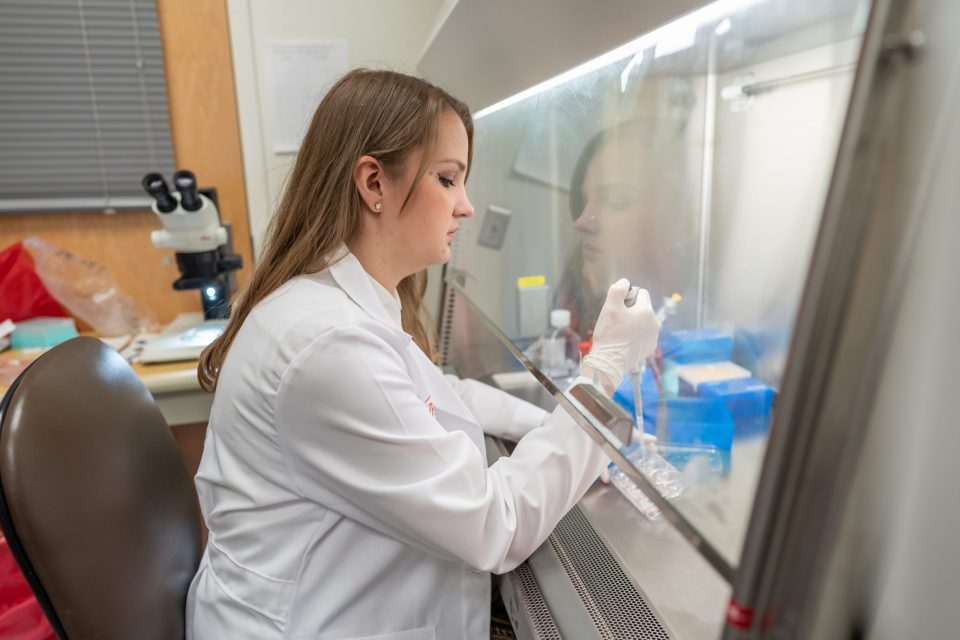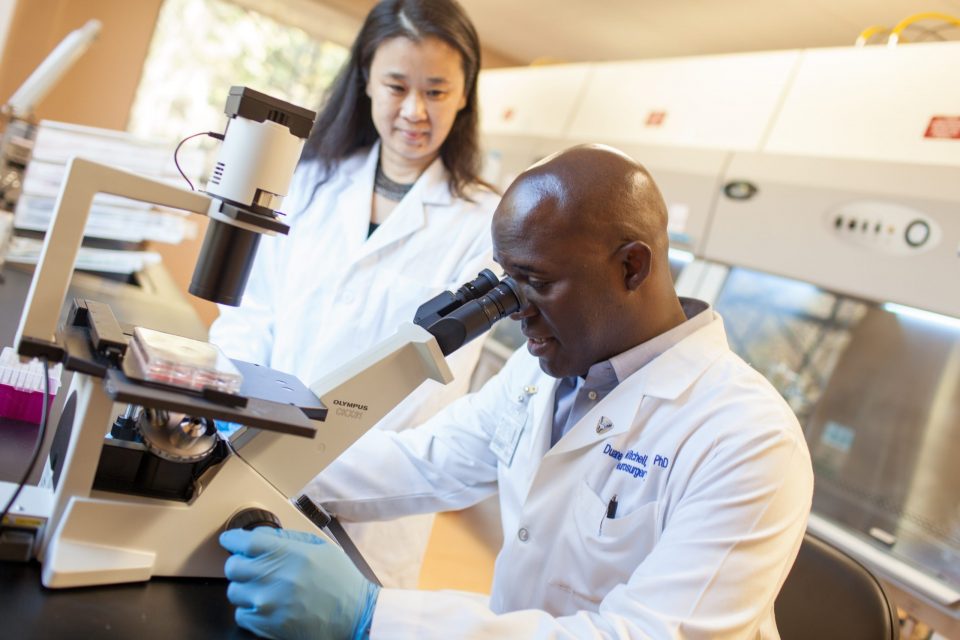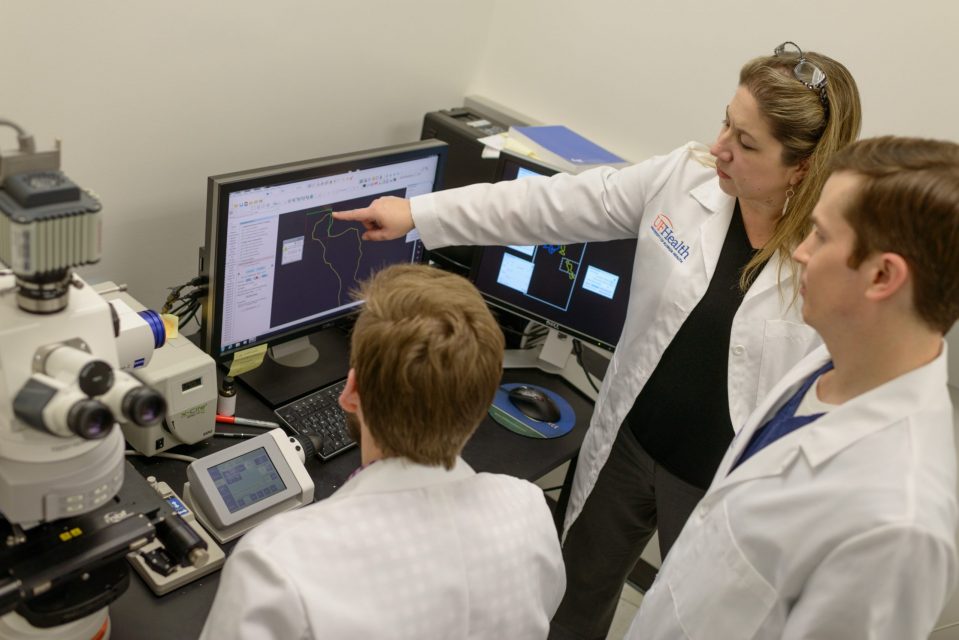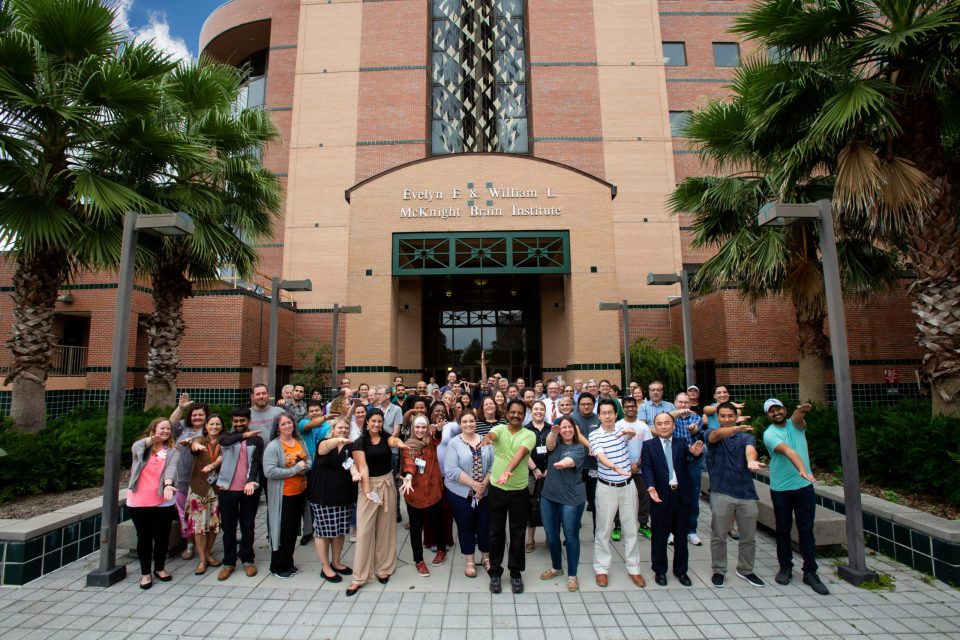The brain is an incredibly complex organ best studied from multiple angles. At the Evelyn F. and William L. McKnight Brain Institute of the University of Florida MBI, teams of neuroscientists from across campus unite to form one of the nation’s most comprehensive and diverse neuroscience and neuromedical research programs.

University of Florida faculty members from a wide array of departments, centers and programs collaborate on multidisciplinary teams under the umbrella of the McKnight Brain Institute to better understand how the brain works and how various diseases alter brain function.
Each year, more than 50 graduate and several hundred undergraduate students, dozens of medical residents, numerous postdoctoral fellows and hundreds of staff scientists pursue these efforts.
The MBI vigorously promotes education and outreach activities through training enhancement opportunities, presentations by visiting preeminent scientists and new communications platforms that greatly increase the visibility of members’ research.

Through these efforts, the MBI aims to help broaden the understanding of many neurological and psychiatric disorders and change them from untreatable to treatable, incurable to curable and inevitable to preventable.
“I have never approached another scientist at the McKnight Brain Institute who wasn’t open to collaboration,” said MBI Executive Director Todd Golde, MD, PhD. “It’s that kind of spirit and a willingness to think outside the box that make the MBI a wonderful place to work and strive to make the discoveries that will really help people one day.”

Research Areas of Focus at the MBI
Addiction
Addiction is one of the most pressing issues of our time. Multidisciplinary experts at the MBI are investigating the mechanisms behind this devastating disorder to find novel ways to treat it at the molecular level, via behavioral neuroscience and through human laboratory studies and epidemiological approaches.
Brain Cancer
Each year, more than 200,000 Americans are diagnosed with a primary or metastatic brain tumor. Our researchers seek to increase survival rates and develop curative treatments.
Breathing Research and Therapeutics
With most forms of neural injury or disease, people suffer from inadequate breathing, swallowing difficulties, and the inability to prevent aspiration. Our researchers are developing new therapies to enhance breathing and swallowing ability for those with neurological disorders.
Chronic Neurological Diseases
Millions of Americans battle neurodegenerative diseases—such as Parkinson’s, ALS, and Alzheimer’s and our researchers seek new approaches to develop the next generation of therapies to combat them.

Cognitive Aging
Our researchers work to speed the progress in treating cognitive deficits associated with the normal aging process, specifically the progressive decline in memory function that affects virtually everyone who reaches advanced age.
Mental Health, Neurobehavioral Sciences and Psychiatry
Our researchers work to understand the causes of neuropsychiatric illness and to improve the lives of those suffering from these brain disorders.
Pain and Sensory Physiology
Sensory system disorders—including trigeminal neuralgia, migraine, and the inability to smell significantly impact health and quality of life. Our researchers are focused on discovering ways to reduce or block neuropathic pain and to help those who have lost, or never had, the sense of smell and/or taste.
Traumatic Brain Injury and Spinal Cord Injury
Concussions can upend lives, and more severe traumatic brain injuries and spinal cord injuries can devastate them. Our researchers seek new therapies to restore function and improve quality of life for those suffering from these injuries.














